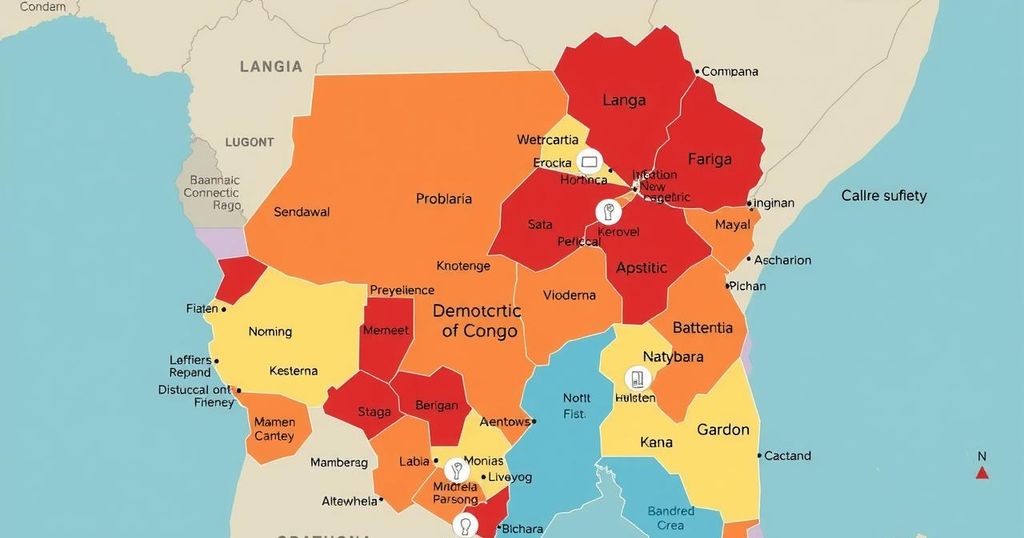Escalating Humanitarian Crisis in the Democratic Republic of the Congo

The Democratic Republic of the Congo is experiencing a major humanitarian crisis due to conflict with M23 rebels, leading to over 7 million displacements and significant food insecurity affecting nearly a quarter of the population. The situation worsened through early 2025 with major city occupations and increasing violence, resulting in dire conditions for millions in need.
The Democratic Republic of the Congo (DRC) is grappling with severe humanitarian crises caused by ongoing violence and instability, particularly due to the M23 rebel group. Since late 2024, fighting has led to the deaths of at least 7,000 people and wounded many others, forcing millions into displacement. Notably, over 3.8 million individuals are in the regions of North and South Kivu, which are heavily impacted by conflict.
The M23 group, composed primarily of former Congolese soldiers from the Tutsi ethnic group, was established in 2012 and named after the March 23 Movement, reflecting a peace agreement they argue has not been honored by the DRC government. After a period of inactivity, M23 re-emerged in late 2021, significantly escalating military operations in the eastern regions of the country.
This year’s conflicts escalated sharply post-January 2025, following the breakdown of peace talks between the DRC and Rwanda. As tensions rose, the M23 captured major cities: Goma on January 27, Bukavu on February 16, and Walikale on March 19, 2025, demonstrating their military effectiveness and further destabilizing the region.
The DRC now harbors one of the largest displaced populations globally, with over 7 million individuals uprooted. Between November 2024 and January 2025 alone, nearly 780,000 fled, with many seeking refuge in countries like Burundi, Uganda, Rwanda, and Tanzania. The United Nations has highlighted significant regional displacement amid escalating security crises.
With over 21 million people already in need of humanitarian assistance prior to the escalated conflict, the humanitarian situation has worsened. By the end of 2024, nearly a quarter of the DRC’s population, approximately 25.6 million people, were facing acute food insecurity due to conflicts, inflation, and health crises. Humanitarian aid efforts have been severely hampered due to looting and violence directed at aid organizations, resulting in lost supplies and further complicating relief efforts.
The situation in the Democratic Republic of the Congo is critical, marked by an extraordinary humanitarian crisis highlighted by mass displacement and food insecurity. As armed conflicts, particularly involving the M23 rebel group, continue to escalate, millions suffer from violence and loss of basic needs. Urgent intervention and sustained international efforts are vital to address these pressing humanitarian challenges.
Original Source: www.aljazeera.com







